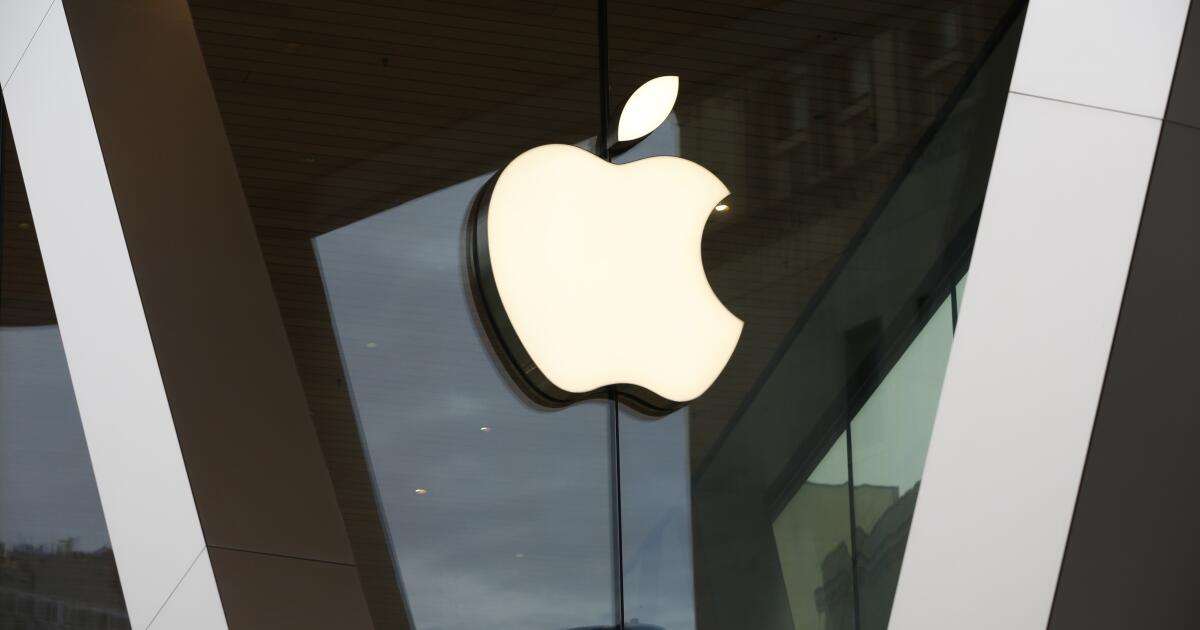Musk’s xAI sues Apple and OpenAI, escalating his legal battle
Elon Musk on Monday ramped up his legal feud with OpenAI as his companies filed a new lawsuit against OpenAI and Apple accusing both of anticompetitive behavior in the artificial intelligence industry in a growing clash of tech titans.
Apple and OpenAI announced a partnership last year that would allow Apple customers to connect with OpenAI’s chatbot, ChatGPT, on iPhones. Musk’s social media firm X and artificial intelligence company X.AI LLC say that the deal has hindered their ability to compete and has locked up markets to maintain what they describe as Apple and OpenAI’s monopolies.
“Plaintiffs bring this suit to stop Defendants from perpetrating their anticompetitive scheme and to recover billions in damages,” according to the lawsuit filed in U.S. District Court in Texas on Monday. Musk’s companies, Bastrop, Texas-based X and Palo Alto-based xAI, are seeking a permanent injunction against Apple and OpenAI and more than $1 billion in damages.
The lawsuit adds to a long-running fight between Musk and OpenAI’s Chief Executive Sam Altman. Musk was an early investor in OpenAI but later left its board and started a rival AI business, xAI. Musk has an ongoing lawsuit against OpenAI and Altman, accusing them of fraud and breach of contract over OpenAI’s efforts to change its corporate structure.
“This latest filing is consistent with Mr Musk’s ongoing pattern of harassment,” OpenAI said in a statement.
Musk companies’ lawsuit claims ChatGPT has at least an 80% market share in the generative AI chatbot market, whereas xAI’s chatbot Grok has just a few percentage points in market share.
“As a result of Apple and OpenAI’s exclusive arrangement, ChatGPT is the only AI chatbot that benefits from billions of user prompts originating from hundreds of millions of iPhones,” according to xAI’s lawsuit. “This makes it hard for competitors of ChatGPT’s generative AI chatbot and super apps powered by generative AI chatbots to scale and innovate.”
xAI has asked to integrate Grok directly with Apple’s software ecosystem, iOS, but hasn’t been allowed to do so, Musk’s companies said in their lawsuit. While users can access other AI chatbots on iPhones by using a web browser or downloading an AI chatbot’s app, “those options do not provide the same level of functionality, usability, integration, or access to user prompts as ChatGPT’s first-party integration with Apple,” the lawsuit says.
The lawsuit also accuses Apple of deprioritizing the AI chatbot apps of OpenAI’s competitors in the App Store.
Apple did not immediately respond to The Times’ request for comment on the lawsuit.
Earlier this month, Musk said on X that he planned to take legal action against Apple, causing a sparring match on the social media platform between him and OpenAI’s Altman.
“Apple is behaving in a manner that makes it impossible for any AI company besides OpenAI to reach #1 in the App Store, which is an unequivocal antitrust violation,” Musk wrote on Aug. 11.
Altman later posted on X, “This is a remarkable claim given what I have heard alleged that Elon does to manipulate X to benefit himself and his own companies and harm his competitors and people he doesn’t like.”
Apple previously told Bloomberg that it collaborates with many developers “to increase app visibility in rapidly evolving categories” and features thousands of apps in charts, algorithmic recommendations and curated lists by experts using objective criteria.
“The App Store is designed to be fair and free of bias,” Apple told Bloomberg.
Apple has also faced backlash and criticism from some developers and the Department of Justice over the way it operates its App Store. Last year the DOJ sued Apple, accusing it of engaging in practices that prevented other companies from offering apps that compete with Apple’s offerings.
At the time, Apple said that if the government’s lawsuit was successful, it would hurt its ability to create the type of technology people expect from Apple “where hardware, software, and services intersect.”
“It would also set a dangerous precedent, empowering government to take a heavy hand in designing people’s technology,” Apple said.
Staff writer Queenie Wong and Editorial Library Director Cary Schneider contributed to this report.

